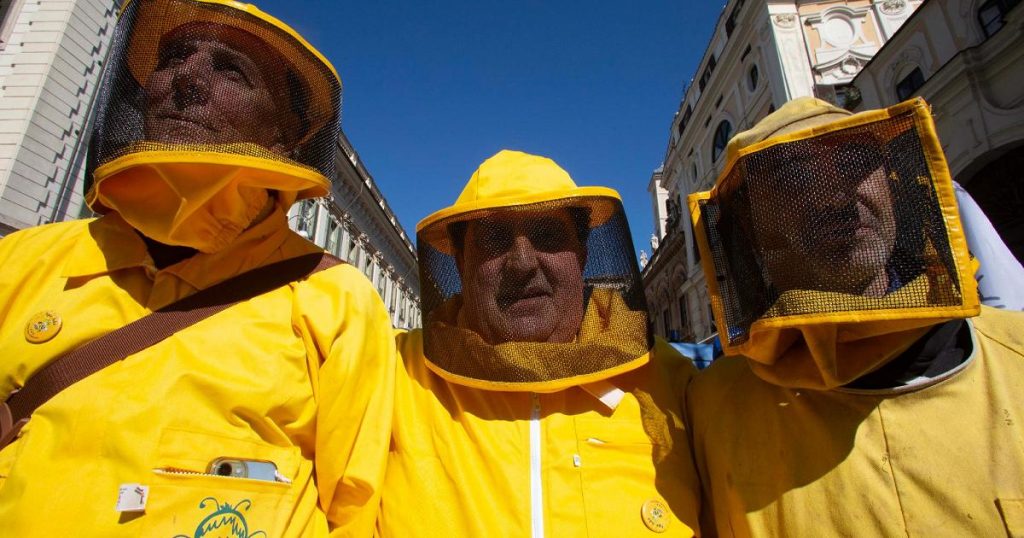On Wednesday, March 20, many Italian beekeeping associations, including Miele in Cooperativa and Arnia Onlus, took to the streets in Rome to demand greater protection for honey produced in Italy and to raise awareness among institutions and the public about unfair competition in the sale of honey from non-EU countries. Italian producers are facing an influx of low-quality foreign products at rock-bottom prices, while the costs of production continue to rise due to the challenges posed by adverse weather conditions such as storms and droughts. The beekeepers assert that they are not only dealing with unfair competition but also with a product that is not healthy and does not comply with European regulations.
A recent investigation by the EU Commission revealed that 46% of imported honey samples analyzed did not meet EU standards, due to the use of sugary syrups that alter the product to increase quantities and lower prices, as well as the use of additives and colorants to falsify the botanical origin. The accompanying press release for the event also disclosed that the highest number of suspicious batches came from China (66 out of 89, or 74%), while Turkey had the highest percentage of questionable honey samples (14 out of 15, or 93%). Over the past two years, honey imports have stabilized at around 25-26 million kilograms, compared to an estimated domestic production of about 22 million kilograms, according to data from Miele in Cooperativa.
The average price of honey imported from non-EU countries has dropped significantly to approximately 1.70 euros per kilogram, as reported by Miele in Cooperativa, while a study by Crea indicates that it costs at least 4.1 euros to produce a kilogram of honey in Italy. This sharp decline in prices presents a challenging situation for the 75,000 domestic beekeepers, with 1.6 million beehives already grappling with rising production costs in a year made difficult by climate change. In addition to the damage caused by storms, the beekeepers are also contending with the effects of drought, which has adversely affected flower blossoms, and the unusual warmth of this winter, which has disoriented the bees and led them to leave the hives in search of flowers.
The Italian beekeeping associations are calling for urgent action to address the issue of unfair competition and to ensure the protection of honey produced in Italy. They argue that the current situation not only threatens the livelihoods of domestic beekeepers but also compromises the quality and safety of the honey available to consumers. By highlighting the discrepancies between imported honey and the stringent regulations that govern honey production in the EU, the beekeepers aim to pressure authorities to take effective measures to safeguard the interests of local producers and maintain the high standards of Italian honey. The rally in Rome serves as a platform for the beekeeping community to voice their concerns and mobilize support for their cause among policymakers and the general public.


